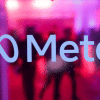Meta’s Llama AI generates revenue through cloud hosting deals, lawsuit reveals

A newly unredacted court filing on March 19 in the ongoing copyright lawsuit Kadrey v. Meta has disclosed that Meta benefits financially from revenue-sharing agreements with companies that host its Llama models.
The lawsuit accuses Meta of using hundreds of terabytes of pirated ebooks to train its Llama models, and the latest filings indicate that Meta 'shares a percentage of the revenue' generated by firms providing access to the AI. While the documents do not specify which hosting companies pay Meta, the company has publicly listed several Llama host partners, including Azure, Google Cloud, AWS, Nvidia, Databricks, Groq, Dell, and Snowflake.
However, earlier in a blog post on July 23, 2024, CEO Mark Zuckerberg claimed that selling access to Llama is not part of Meta's business model.
"A key difference between Meta and closed model providers is that selling access to AI models isn't our business model. That means openly releasing Llama doesn't undercut our revenue, sustainability, or ability to invest in research like it does for closed providers," the blog stated.
Although developers are not required to access Llama models through these partners—since the models can be downloaded and deployed independently—many cloud providers offer additional tools and services for easier implementation.
Zuckerberg had previously mentioned the potential monetisation strategies for Llama. During an earnings call in April 2024, he mentioned the possibility of licensing access to the AI and exploring monetisation through business messaging and advertising within AI interactions. At the time, he indicated that Meta intended to secure a portion of the revenue generated by companies reselling AI services built on Llama.
The latest revelations are significant in the context of Kadrey v. Meta, in which plaintiffs claim that Meta not only trained Llama on pirated content but also facilitated further copyright infringement by "seeding" these works—allegedly distributing ebooks through secret torrenting methods. The plaintiffs argue that Meta's training process involved file-sharing techniques that, by their nature, also made the materials available to others.
In January, Meta announced its plan to invest up to $65 billion in 2025 for expanding data centres and strengthening AI development teams. In an apparent effort to offset some of these costs, Meta is reportedly considering launching a premium subscription service for Meta AI, which would introduce new capabilities to its assistant.

 For all latest news, follow The Daily Star's Google News channel.
For all latest news, follow The Daily Star's Google News channel. 








Comments